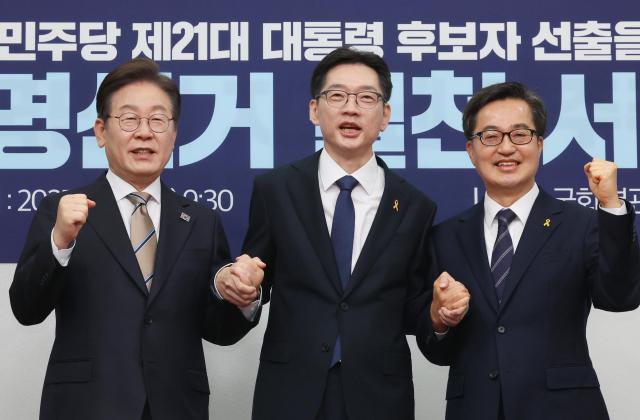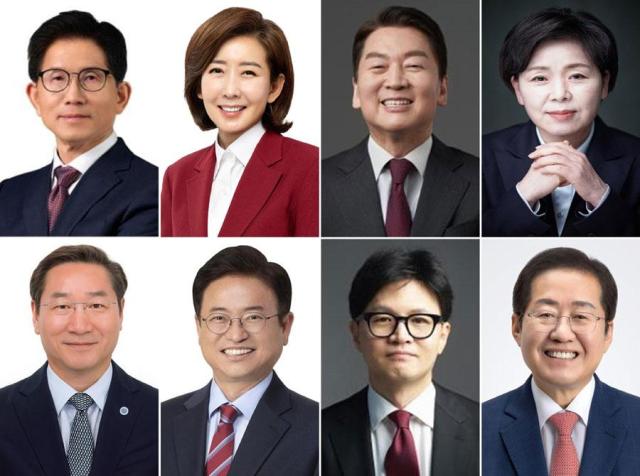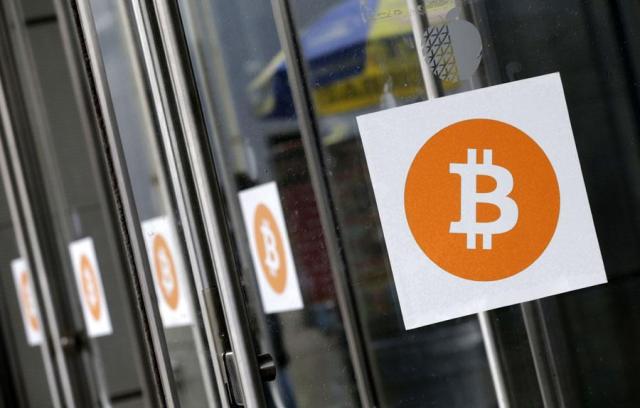
SEOUL, April 16 (AJP) - Lee Jae-myung, a Democratic Party (DP) presidential contender, described the upcoming June 3 election as a critical junction in South Korea’s political history, calling it “a turning point between the past and the future.”
Speaking at the DP’s fair election pledge ceremony held at the National Assembly on Wednesday, Lee stressed, “We must win, whoever the final candidate is, not for personal gain, but for the future of the country.” He emphasized that the DP must act as a political force that channels the people’s sovereign will and do its best to improve lives. “The Democratic Party must give everything it has for a better country and the lives of its citizens,” he said.
Praising fellow candidates Kim Dong-yeon and Kim Kyoung-soo, Lee said, “Both are exceptional individuals in terms of capability and character. I am honored to run alongside them.” The April 16 event marked the official launch of the DP primary race. Meanwhile, Lee’s campaign hit its fundraising goal of 2.94 billion won ($2.05 million) in just one day, demonstrating strong grassroots support.
Former South Gyeongsang Governor Kim Kyoung-soo, also running in the primary, called for unity within the party. “It is an honor to compete with Lee Jae-myung and Kim Dong-yeon for a decisive transfer of power,” he said. “The Democratic Party has historically won when united and lost when divided.” He added, “Let this primary be a chance to establish a culture of gracefully accepting the result and committing fully to the final campaign.”
Former Gyeonggi Governor Kim Dong-yeon, who was assigned number 3 on the ballot, said, “I’m honored to have this opportunity. I will do my best to be selected as a capable economic leader and serve as an economic president.” He added, “I will work toward real change that goes beyond just a power shift—toward transformation through bold unity.”
All three candidates are expected to jointly attend a memorial event for the 11th anniversary of the Sewol ferry disaster.
The Sewol ferry tragedy occurred on April 16, 2014, claiming 304 lives, most of them high school students. The incident triggered national grief and led to widespread criticism of the government’s disaster response. It remains a powerful symbol of public demand for safety reform and accountability in South Korea.
Copyright ⓒ Aju Press All rights reserved.



![[UPDATE] Presidential election date to be decided through cabinet meeting](https://image.ajunews.com/content/image/2025/04/07/20250407120528106732.jpg)

View more comments